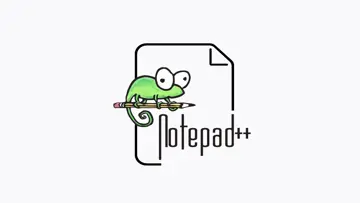ODB: Streamlining Your Database Management with Ease
ODB by Boris Kolpackov offers an efficient and user-friendly approach to object-relational mapping, making database interactions seamless for developers.
Editor’s Review of ODB by Boris Kolpackov
ODB, developed by Boris Kolpackov, is a powerful Object-Relational Database (ORDB) library designed for C++ applications that require efficient interaction with database management systems. By offering a simple interface and robust features, ODB aims to ease the complexity associated with database programming while ensuring high performance and portability across various platforms. Below is a detailed overview of ODB highlighting its features, capabilities, and usability.
Overview of ODB
ODB stands out as a modern database framework that allows developers to seamlessly work with databases using C++ objects. It supports a variety of relational databases, including SQLite, MySQL, PostgreSQL, and Oracle. The library is open-source, which makes it accessible for both personal and commercial use.
Key Features
- Object-Relational Mapping (ORM): ODB provides an ORM system that simplifies the interaction between C++ objects and SQL databases. Developers can focus on the application logic rather than writing complex SQL queries.
- Cross-Platform Compatibility: The library is designed to work on numerous platforms, ensuring that developers can build applications targeting different operating systems without major adjustments.
- Support for Multiple Databases: ODB supports multiple database backends, enabling developers to switch databases with minimal changes in the application code.
- Schema Generation: The library can automatically generate database schemas from C++ class definitions. This feature reduces the need for manual schema updates whenever changes are made to the object model.
- Performance Optimization: ODB optimizes performance by caching query results and minimizing database interactions, allowing applications to scale efficiently with usage.
- Type Safety: ODB leverages C++'s strong type system to prevent runtime errors associated with type mismatches during database operations.
- C++11 Support: The library utilizes modern C++ features from C++11 and later versions, providing an enhanced programming experience and taking advantage of language improvements for better performance and usability.
Installation and Setup
The installation process for ODB is straightforward. Developers can download the pre-built binaries or compile the library from source code. Detailed documentation is provided on the official website, guiding users through the setup process based on their specific operating system and configuration requirements.
Usage Example
The following outline illustrates a typical workflow when using ODB:
- Defining Classes: Developers define C++ classes representing their data models. For example: class person { public: std::string name; int age; };
- Annotated Classes: To use ODB's features, classes should be annotated with relevant macros for persistence operations. #pragma db object class person { // class definition... };
- Compiling with odb Compiler: Use the odb compiler to generate the necessary code for database interactions automatically.
Coding Examples
An example of how to save an object to the database using ODB might look like this:
#include <odb/database.hxx>
#include <odb/transaction.hxx>
// Assume proper database setup and initialization
{
person p;
p.name = "John Doe";
p.age = 30;
odb::transaction t(db->begin());
db->persist(p);
t.commit();
}
Error Handling
Error handling in ODB utilizes C++ exceptions. This behavior ensures that developers can catch errors during database operations effectively. Documentation outlines common exceptions thrown by the library, enabling users to implement appropriate error handling strategies in their applications.
Documentation and Community Support
Boris Kolpackov provides extensive documentation that covers initial setup, advanced usage patterns, and troubleshooting guides. In addition to documentation, users can access community forums where they can share experiences, ask questions, and collaborate on best practices related to ODB. This community outreach contributes significantly to user experience and knowledge sharing among developers using ODB.
User Experience
The feedback from developers who have implemented ODB in their projects highlights its ease of use and efficiency in managing database interactions. Many existing users commend its straightforward syntax and ability to handle complex scenarios involving relationships between different data models seamlessly.
ODB by Boris Kolpackov presents a comprehensive solution for C++ developers looking to integrate object-relational mapping into their applications. With its robust feature set, support for multiple database systems, excellent performance optimizations, and a strong emphasis on modern C++, it's an attractive option for building scalable data-driven applications. Whether working on small projects or large enterprise-level systems, ODB provides the tools necessary to efficiently manage database interactions while maintaining clean and maintainable codebases.
Overview
odb is a Open Source software in the category Development developed by Boris Kolpackov.
The latest version of odb is currently unknown. It was initially added to our database on 10/01/2010.
odb runs on the following operating systems: Windows.
odb has not been rated by our users yet.
Pros
- Highly efficient and fast object database management
- Supports a wide range of programming languages
- Provides an easy-to-use API for developers
- Flexible data model allows for dynamic data structure changes
- Good support for large datasets and complex queries
- Active community and regular updates from the developer
Cons
- Limited documentation compared to more established database systems
- May have a steeper learning curve for beginners
- Fewer integrations with third-party tools and libraries
- Not as widely adopted as traditional relational databases, which may limit community support
- Performance may vary based on specific use cases and configurations
FAQ
What is ODB by Boris Kolpackov?
ODB is a C++ object-relational mapping (ORM) system that allows developers to work with C++ objects and databases seamlessly.
Who is Boris Kolpackov?
Boris Kolpackov is the creator of ODB and an expert in C++ and database technologies.
What are the key features of ODB?
Key features of ODB include transparent object persistence, platform independence, and flexibility in mapping C++ objects to database tables.
Is ODB open source?
Yes, ODB is an open-source project available under the GNU General Public License (GPL).
Which databases does ODB support?
ODB supports various popular databases such as MySQL, PostgreSQL, SQLite, and Oracle.
Is ODB actively maintained?
Yes, ODB is actively maintained with regular updates and contributions from the community.
Does ODB support advanced database features?
Yes, ODB supports advanced database features such as transactions, stored procedures, and database-specific optimizations.
Can I use ODB with my existing C++ project?
Yes, ODB can be integrated with existing C++ projects to provide object-relational mapping capabilities.
Is there a community around ODB for support and collaboration?
Yes, there is an active community around ODB where users can seek support, share knowledge, and collaborate on improvements.
Where can I find documentation for ODB?
Documentation for ODB can be found on the official ODB website along with tutorials and examples to help you get started.

Elena Angelini
I'm Elena, your go-to software reviewer at UpdateStar and tech enthusiast. Whether you're a user seeking the latest software titles or software news I've got you covered. When I'm not diving into the latest software, you can find me exploring nature trails, camping under the stars, or competing in online multiplayer games. My reviews are designed to be fun, engaging, and packed with all the details you need to make informed decisions.
Latest Reviews by Elena Angelini
Latest Reviews
|
|
EaseUS VideoKit
Unlock Your Creativity with EaseUS VideoKit |
|
|
UltraViewer
Efficient Remote Desktop Software for Smooth Collaboration |
|
|
Compare Two Lists
Effortlessly Compare Lists with VOVSOFT's Tool |
|
|
HsVRWebPlugin
Revolutionizing Web VR Experience with HsVRWebPlugin |
|
ImTOO Audio Converter Pro
ImTOO Audio Converter Pro: A Versatile Audio Conversion Tool |
|
|
DXVA Checker
DXVA Checker: Insightful Tool for Video Playback Analysis |
|
|
UpdateStar Premium Edition
Keeping Your Software Updated Has Never Been Easier with UpdateStar Premium Edition! |
|
|
Microsoft Edge
A New Standard in Web Browsing |
|
|
Google Chrome
Fast and Versatile Web Browser |
|
|
Microsoft Visual C++ 2015 Redistributable Package
Boost your system performance with Microsoft Visual C++ 2015 Redistributable Package! |
|
|
Microsoft Visual C++ 2010 Redistributable
Essential Component for Running Visual C++ Applications |
|
|
Microsoft OneDrive
Streamline Your File Management with Microsoft OneDrive |





